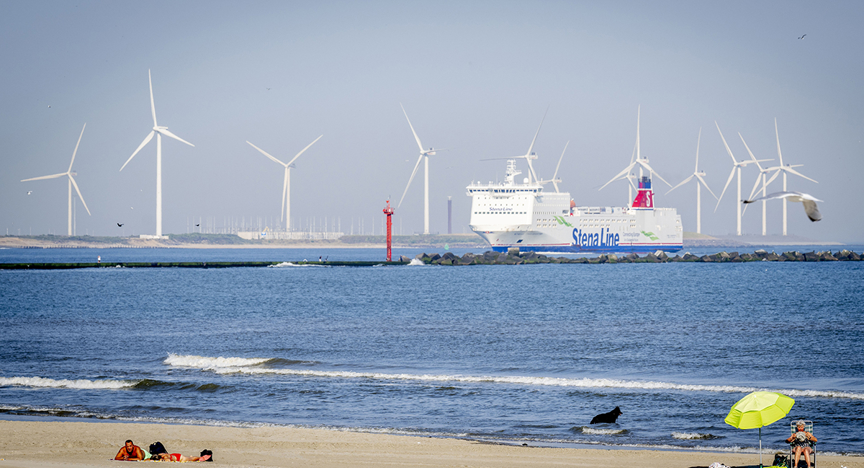Terms of trade worsen as import prices rise relative to exports
The open Dutch economy is dependent on how the prices of imports and exports develop. Partly due to the sharply higher energy prices in 2021 and 2022, the price of imports increased more than exports on average. This is because, on balance, the Netherlands has to import energy from abroad, as reflected in the development of the terms of trade. This is a metric that shows the ratio of average export and import prices for a given year. If the prices of imported goods and services rise faster than export prices, the terms of trade fall, as was the case in both 2021 and 2022. The terms of trade deteriorated by 1.7% in 2021 and 2.9% in 2022 compared to the previous year.
Fall in terms of trade leads to national income loss
The deterioration in the terms of trade has a negative impact on the Netherlands’ total income, and by extension on expenditures. For energy in particular, the amount of imports is relatively fixed in the short term. When the price of energy rises, a larger share of income has to be paid to foreign nations on balance, leaving less income for domestic expenditures. To calculate this income loss (measured relative to GDP), we assume that the quantity of imported goods, including energy, remains unchanged. In other words, the calculation shows how much more the Netherlands would have to pay as a result of higher import prices to purchase the same quantity of goods and services. In both 2021 and 2022, this income effect of the terms of trade was negative; it amounted to -0.6% of GDP in 2021 and -0.7% in 2022 (Figure 1). The contribution of energy to this terms of trade effect was significant, amounting to -1.0 percentage points of GDP in 2021 and -0.8 percentage points in 2022. The ultimate, actual loss may not be too severe because the quantities of goods and services traded respond to price changes over time.
Recent lower energy prices could mean improvement in terms of trade in 2023
The sudden rise in international energy prices entailed an income loss for the Netherlands, amounting to nearly 2% in 2021 and 2022. Some of this loss has been absorbed by Dutch companies and consumers through energy efficiency measures and by raising the prices of exported goods. The remaining loss will be borne by the government, companies and working people. With energy prices now falling again, it is likely that the terms-of-trade loss will reverse in 2023.





